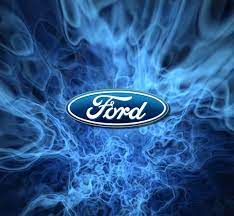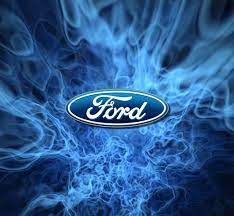
Ford Motor Co. needs to reinvent its brand for the world's largest auto market as it deals with a booming and very competitive market for electric vehicles (EVs) in China, according to Chief Executive Jim Farley.
"We're going to have to rethink what the Ford brand means in a place like China," Farley told reporters on Thursday evening in Detroit, speaking on the sidelines of a charity event.
"It can't be like middle of the market. It's totally over-filled."
He wasn't questioned about it, and he didn't elaborate on what a brand reset would involve.
As sales of battery-electric and plug-in hybrid vehicles soared, driven by China's BYD, Ford brand sales in China fell in the first quarter, along with sales and market share for other well-known, international automakers.
The only premium brands excelling in China were all-electric from the outset and focused on technology, the "digital experience" of drivers and services, said Farley, who had recently returned from a trip there. As examples of indigenous companies doing it correctly, he listed Xpeng, Nio, and Li Auto.
He said that even China's state-owned automakers had developed fresh branding for EVs.
"The differentiation really comes down to technology and services," he said.
"They're all beautiful. All of these vehicles are so beautiful. Go to China."
According to Farley, there is fierce competition for two-row, SUV-styled electric vehicles in the market, where Tesla also competes with the Model Y.
"The have so much overcapacity in the two-door crossover that the amount of money those companies are losing and burning is incredible," he said of the Chinese brands.
"That's why they're going big on Europe. Europe is a premium export market. They're all going there."
Farley, who made a video appearance at the Shanghai auto show last week, claimed that BYD, which controls the market for EVs and plug-in hybrids in China and offers the most popular EV there, had a unique advantage in controlling all the crucial components of its supply chain.
"There is one huge company that is so impressive, BYD. They're in a totally different world than Tesla," he said.
"They're totally vertically integrated, completely, all the way to batteries. No one is doing that on the globe."
With its combination of design, battery range, and price, BYD's entry-level EV, the Seagull, stunned experts and industry executives this week at the Shanghai car show.
The entry-level hatchback will cost 78,000 yuan ($11,300), which is significantly less than what EV major brands charge.
(Source:www.reuters.com)
"We're going to have to rethink what the Ford brand means in a place like China," Farley told reporters on Thursday evening in Detroit, speaking on the sidelines of a charity event.
"It can't be like middle of the market. It's totally over-filled."
He wasn't questioned about it, and he didn't elaborate on what a brand reset would involve.
As sales of battery-electric and plug-in hybrid vehicles soared, driven by China's BYD, Ford brand sales in China fell in the first quarter, along with sales and market share for other well-known, international automakers.
The only premium brands excelling in China were all-electric from the outset and focused on technology, the "digital experience" of drivers and services, said Farley, who had recently returned from a trip there. As examples of indigenous companies doing it correctly, he listed Xpeng, Nio, and Li Auto.
He said that even China's state-owned automakers had developed fresh branding for EVs.
"The differentiation really comes down to technology and services," he said.
"They're all beautiful. All of these vehicles are so beautiful. Go to China."
According to Farley, there is fierce competition for two-row, SUV-styled electric vehicles in the market, where Tesla also competes with the Model Y.
"The have so much overcapacity in the two-door crossover that the amount of money those companies are losing and burning is incredible," he said of the Chinese brands.
"That's why they're going big on Europe. Europe is a premium export market. They're all going there."
Farley, who made a video appearance at the Shanghai auto show last week, claimed that BYD, which controls the market for EVs and plug-in hybrids in China and offers the most popular EV there, had a unique advantage in controlling all the crucial components of its supply chain.
"There is one huge company that is so impressive, BYD. They're in a totally different world than Tesla," he said.
"They're totally vertically integrated, completely, all the way to batteries. No one is doing that on the globe."
With its combination of design, battery range, and price, BYD's entry-level EV, the Seagull, stunned experts and industry executives this week at the Shanghai car show.
The entry-level hatchback will cost 78,000 yuan ($11,300), which is significantly less than what EV major brands charge.
(Source:www.reuters.com)














